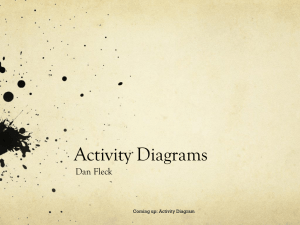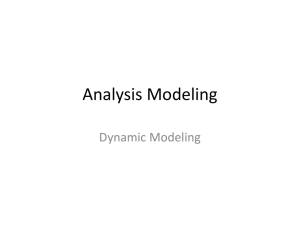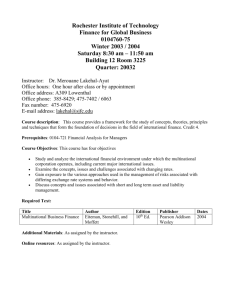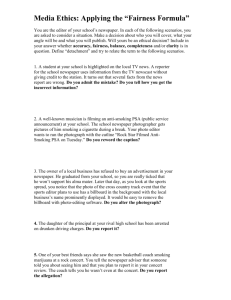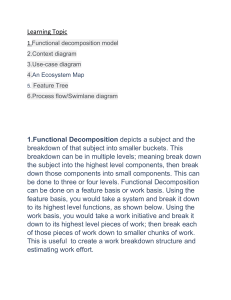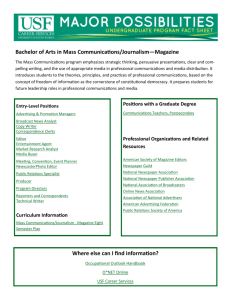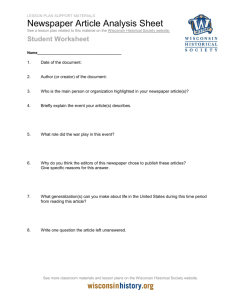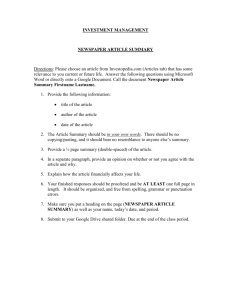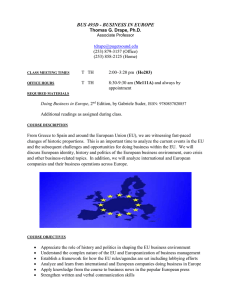Exam 1 Review Slides_updated
advertisement
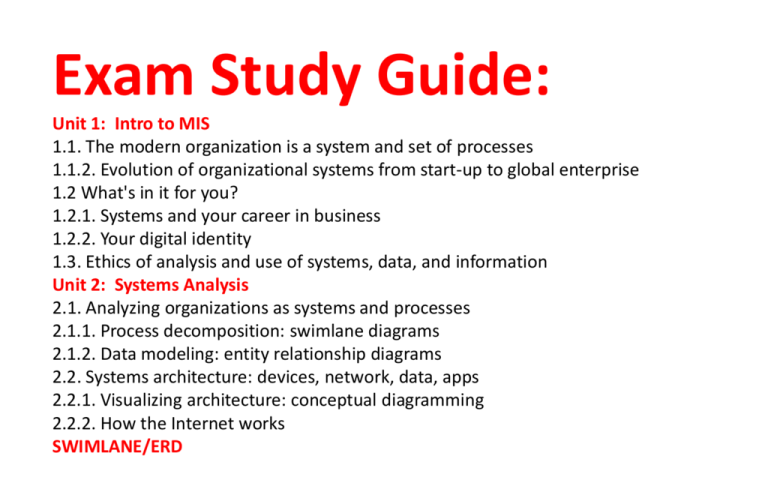
Exam Study Guide: Unit 1: Intro to MIS 1.1. The modern organization is a system and set of processes 1.1.2. Evolution of organizational systems from start-up to global enterprise 1.2 What's in it for you? 1.2.1. Systems and your career in business 1.2.2. Your digital identity 1.3. Ethics of analysis and use of systems, data, and information Unit 2: Systems Analysis 2.1. Analyzing organizations as systems and processes 2.1.1. Process decomposition: swimlane diagrams 2.1.2. Data modeling: entity relationship diagrams 2.2. Systems architecture: devices, network, data, apps 2.2.1. Visualizing architecture: conceptual diagramming 2.2.2. How the Internet works SWIMLANE/ERD Mini-Case Tips: 1. Read the case 2. CAREFULLY read the questions. Make sure you understand what you are being asked to do. 3. GO BACK AND REREAD THE CASE. - Discern what information is relevant to your task - Dissect it to find the answers/evidence in the text - Consider using colored highlighters 4. Construct a swimlane diagram and ERD on your own 5. Compare it to the diagrams provided to answer each question. Mini-Case Tips: Swimlane 1. 2. 3. 4. Read the case Identify the Process. Give it a TITLE Identify all of the actors - create your lanes Follow the process in the narrative (Look for VERBS) - What initiates it - What happens first? Next?... 5. Make sure you identify ACTIONS and DECISIONS - What alternate paths are possible with each decision? 6. What closes the process? Mini-Case Tips: ACTIVITY Purchasing an Ad at the Drexel University Student Newspaper The Triangle, Drexel’s student newspaper, is a weekly publication distributed around Drexel’s University City and Center City campuses. The paper has a readership in the thousands; favored by students, faculty, and visitors of the university. A large portion of the newspaper’s budget comes from advertisements from local businesses. The process by which a business purchases an ad in the newspaper is multi-faceted and requires the effort of a variety of individuals. First, a customer reaches out to the Sales Manager at the paper, expressing interest in purchasing a full-page advertisement for the following week. One week’s notice is required for all advertisements, as the staff needs time to craft the layout of the paper prior to submitting it to the publisher. The Sales Manager receives the request and creates an invoice in QuickBooks, which is then forwarded to the customer. The Sales Manager also asks the customer for any artwork they may have. The customer then signs the invoice, sends payment (if acceptable), and emails the artwork to the Sales Manager. With the customer’s response in-hand, the Sales Manager takes the payment and sends it to the Accounting Team. The Accounting Team deposits the payment into the paper’s bank account, and makes note of the receipt in a dedicated Microsoft Excel file. Once the payment is confirmed, the artwork and copy for the ad are approved by the Managing Editor of the paper. If approved, the Editor places the ad into the paper to be printed, and confirms the submission to the Sales Manager. If the ad is not approved, the Managing Editor works with the client to create a new ad. After the paper is printed, the Accounting Team sends a tear-sheet of the advertisement to the customer. • Mini-Case Tips: ERD 1. Read the case - What information do you need? 2. Identify all of the ENTITIES (Look for NOUNS) 3. What information describes the Entities? These are ATTRIBUTES. 4. What RELATIONSHIPS exist between entities - These are in the narrative. - They are typically real world relationships Activity: Study Guides
